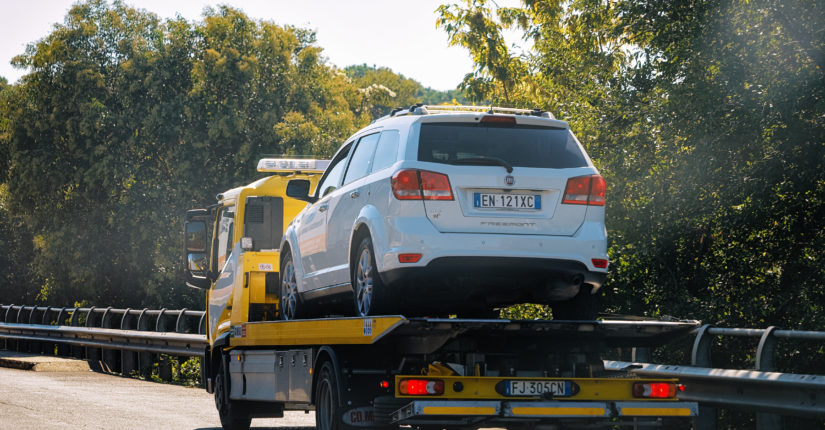“A Record 7 Million Behind on Car Loans”, The Philadelphia Inquirer, 2/13/19
The Federal Reserve Bank of New York reported that, “A record seven million Americans are 90 days or more behind on their auto loan payments. Despite a strong economy, economists are warning that Americans are struggling. Although a car loan is the first payment people make because a vehicle is critical to getting to work, when car loan delinquencies rise, it is a sign that many American are under duress.”
BEFORE a Repossession:
1) Prepare yourself. 
We all know that when a borrower falls behind on payments or breaks the terms of an auto loan agreement, the lender, whether it’s the bank, finance institution or credit union, is entitled to repossess the vehicle. These terms are stated in the loan agreement, or Retail Installment Sales Contract, that is signed at the time of purchase.
Repossessions can occur at any time of day or night — while at the supermarket, taking the kids to school, at a relative’s home for holiday dinner, or while asleep. Even if a borrower anticipates a repossession may occur, it never happens at a good time. Prepare yourself.
With a little forethought, you may be able to ease the stress caused by a car repossession. If you’ve fallen behind and believe your car may be up for repossession, make a plan to handle daily chores for you and your family.
- Ask for help. Contact your family, friends and neighbors and find out who may help. Inquire about their work schedules and daily commitments. Let them know you may have an emergency coming up and need their assistance.
- Organize carpools and babysitters. Develop a network of friends that can step in to cover demands of the household.
- Arrange for delivery. Call your supermarket or pharmacy to find out if they are able to make deliveries to your home. Inquire about the cost and delivery schedule.
2) Clean out the car.
Before your vehicle is taken, gather items from your car and store them in a safe place. If your car is taken unexpectedly, you may not have a chance to remove all of your personal items. Often, the repo man may not allow you time to remove everything. And, remember, once out of your possession, these belongings may be lost – forever.
Pre-Repossession Check List
_____ Buyer’s Agreement
_____ Loan Agreement
_____ Odometer Statement
_____ Vehicle Registration
_____ Warranty Agreement
_____ Auto Insurance Policy & Card
_____ Auto Insurance Payment Record
_____ Vehicle Service Records
_____ Loan Payment History from Lender
_____ Loan Payment Records
_____ All Correspondence from Lender
Vehicle Photographs
_____ Car Interior & Exterior
_____ VIN# from Inside Door
_____ Odometer Reading
Removal of all Valuables
_____ Wallet/Purse/Cash/Paycheck
_____ Medications/Prescriptions
_____ Work-related items
_____ Laptop computer
_____ Phone
_____ Child Car Seat
DURING a Repossession:
The lender will hire a repossession company to retrieve vehicles scheduled for repossession. The repo-man cannot use physical force, threaten you, or enter your property without permission. If you believe the repo-man mishandled the repossession, take steps to document the event.
- Prepare a written statement with date, time, repo company & agent, & events.
- Photograph the scene.
- Repo agent’s truck and license plate.
- Your vehicle, interior, exterior and odometer reading.
- Damaged property, i.e. garage door, fence, other vehicles, lawn, etc.
- Obtain witness statements.
- Request the police come to the scene. Obtain a police report.
Police Involvement: Keep the Peace or Breach the Peace?
It’s not uncommon for the police to become involved during a car repossession. Sometimes the repo agent or the borrower will ask the police to be there to diffuse a potentially volatile situation. The police may assist in keeping the peace.
If the police get involved in the repossession of the vehicle, they may have crossed the line from keeping the peace, to breaching the peace. The police may not threaten arrest, or damage to the vehicle, or command the vehicle or keys be turned over. If this occurs, the borrower’s Constitutional rights may have been violated and a lawsuit against the police, repo agency and/or lender may be filed.
AFTER a Repossession:
The borrower is entitled to receive notices from the lender after a vehicle is repossessed. The first letter is a repossession notice called a Notice of Intent to Sell Property, which details terms for the borrower to retrieve the vehicle. This notice will detail payments required, the time period for payments to be paid to the lender, and the repo lot location for retrieval of the vehicle and any personal property.
If the borrower is unable to get the vehicle back, the lender will arrange to sell the it at an auction or a private sale. Once sold, a second notice is sent to the borrower confirming the selling price of the vehicle and any remaining balance due on the loan. This notice is called a Deficiency Notice.
FREE LEGAL HELP:
Flitter Milz is knowledgeable about the laws governing repossessions of cars, trucks, motorcycles, boats and RVs. If your vehicle has been repossessed, CONTACT US. We will review the details of your case at no cost to you, and evaluate whether your consumer rights were violated.









